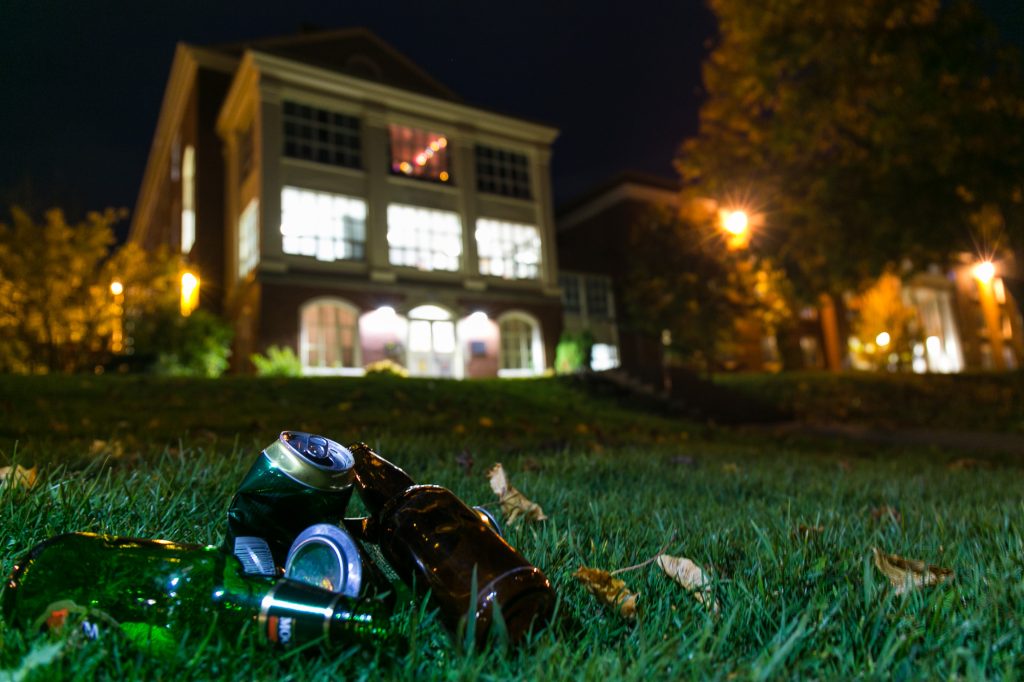The university experience relies on classes Monday to Friday, mediocre living conditions, adventures with friends, and late nights out from Thursday to Sunday. Right? That is what underlies all the stories we hear from parents or older friends, and what comprises the coming-of-age movies that are so popular. Socializing and parties have become as ingrained into the perception of university as the education students enroll to receive.
As students there is a pressure to perform well academically while also taking part in the social culture that is sold as essential to this period of life. Every single weekend someone is hosting a party, and it can be easy to feel as if you are missing out if you decide to stay in for a night. Keeping pace with this party culture can be exhausting, especially combined with high academic standards.
What happens when someone can’t keep up with the social commitment, or simply doesn’t want to?
Sarah Johnson, a counsellor at UNB Counselling Services, has noted an increase in diagnosable anxiety in university settings, and more students coming forward seeking professional help. Although this could be because of more awareness around mental health lessening the stigma in seeking help, Johnson acknowledges the high demands placed on students.
“There is a lot of stress and pressure that comes as a result of this life experience, and not everyone comes with effective coping tools to deal with it,” she said.
Johnson notes that living in residence can be a significant trigger for anxiety and social anxiety. Social anxiety is a subset of a diagnosable anxiety disorder, mainly brought on by social interactions and over-stimulating situations. Johnson explains that many factors of residence life, such as the loud noise, the constant presence of people and the difficulty in finding personal space, can make living there chaotic for some individuals.
“It’s really hard to find a manageable level of stimulus,” Johnson said.
Although the counsellor would not necessarily recommend residence life to those who experience social anxiety, she is quick to point out the positive possibilities it offers. She said it can be helpful in pushing some people outside their comfort zones. This can be beneficial in combating social anxiety.
“With a plan, and with structure, you can use the environment to expose yourself more and avoid falling into a withdrawal pattern.”
People with anxiety may avoid their triggers at all costs, which can lead to isolation and disconnection. A university residence is always full of people and life, and removing yourself from it is often impossible. While this can sometimes be overwhelming, it also prevents any form of withdrawal.
Johnson offered several coping mechanisms when dealing with social anxiety in residence, including grounding techniques, deep breathing and meditation. These strategies all encourage an individual to focus on the present, and can be done in the comfort and privacy of your own dorm room.
She encourages people to respect their limits and allow themselves breaks when they need it.
“Know yourself and know what you can handle, and when too much is too much. Giving yourself permission to say ‘I’ve had enough for today’ is okay,” Johnson said. “Be open with the people around you, so that people will understand your limits and know what is helpful for you to stay safe”.
She also emphasizes that peers, proctors and Student Services can provide support for struggling students.
Neville Jones proctor Hannah Sharpe detailed the training proctors undertake in regards to mental health, including training sessions in supporting students with depression, anxiety disorders and panic attacks, compulsive behaviours and suicide prevention.
“Proctors work to establish trusting and supportive relationships with their residents to ensure that everyone has a positive experience and feels included in the community,” she said.
Sharpe has witnessed people with social anxiety and introverts experience residence life in very different ways. She agrees with many of the benefits highlighted by Johnson, saying that she has known such people to build tight-knit relationships with other residents.
“It’s awesome to see groups of residents come together to form strong and lasting bonds,” Sharpe said.
She describes how many university activities are designed so that individuals can avoid the party culture if they so desire. Orientation week is a good example of this, as they aim to provide a smaller scale event at the same time as campus parties.
Sharpe said that although residence can be stressful at times, it can also be a supportive, inclusive community.
“For most students moving into residence, it’s their first time leaving home and their family and friends, which can be very intimidating and lonely. Residence provides an opportunity to meet new people in a less intimidating way,” she said. “Being a member of a community can feel like being welcomed into a really cool, really accepting family, where you are supported, uplifted, and safe.”




